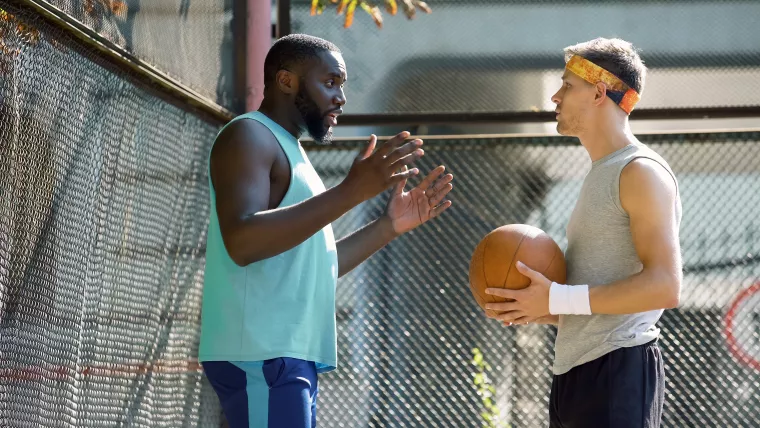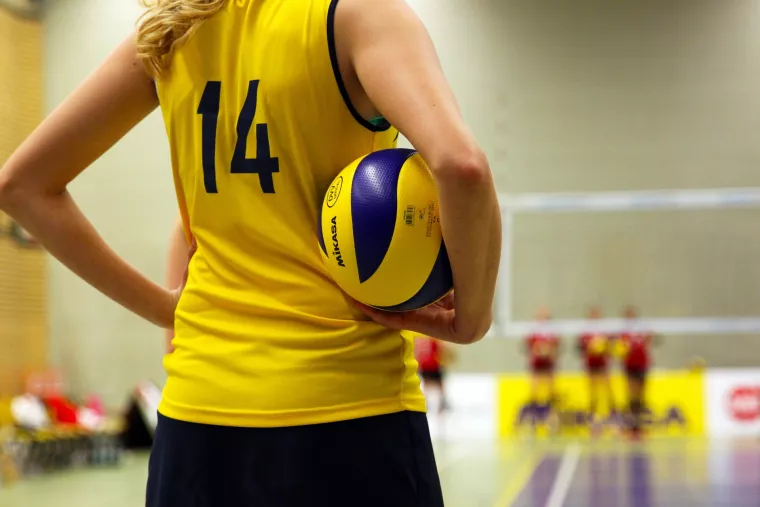Module 4 - Your role as a coach
- Describe the role of coaches in helping athletes deal with stress
- Outline approaches coaches can take in the moment
- Reinforce the importance of prioritizing mental skills practice
"Players want to know you’re there for them on their darkest days. When they’re going through something, it’s the coach that’s going to be the one to help carry them through those dark moments.”
What is your role as a coach?
You’re a leader. You create team culture.
Recognize: As a coach, you can talk about the stress response and make space for athletes to deal with emotional reactions.
Prioritize: If you provide time for mental training activities, athletes will engage in them.
Model: Athletes look up to you. If they see you working on your own mental skills, those actions speak louder than words.

What can I do in the moment when my athlete is stressed?
1. Check your own emotion
- Is their anger making you angry? Anxious? You can’t help someone get calm if you're not calm.

2. Observe / Listen / Reflect
- What does their body language tell you?
- Ask questions, listen, repeat back. Say little.

3. Make space
- Chemicals in the blood stream fuel strong emotional reactions—your athlete can’t just stop being angry or scared.
- If you give them time and space, the emotions will go down.

4. Suggest coping strategies
- FEEL - Have them splash cold water in their face, lie in the grass
- MOVE - Go for a run, throw a ball
- CONNECT - Talk to teammates, text a friend
- RESET - reset using some of the techniques you've taught them in practice

5. Reach out for help
- Sometimes emotional reactions are so strong that you need outside help, particularly if an athlete is threatening others or themselves.
- In these situations, do not hesitate to reach out to parents and school officials for help.
- Click for mental health resources including national hotlines.

Next steps
Scenarios:
- In the next module, you’ll practice helping athletes manage a stressful moment.
- You can use some of the techniques we talked about on the previous page.
- You can also use other strategies from your experience as a coach.
- There’s not one right way to go through these scenarios.
Mental Skills:
- The last module will help you incorporate mental training into your team’s practice.
